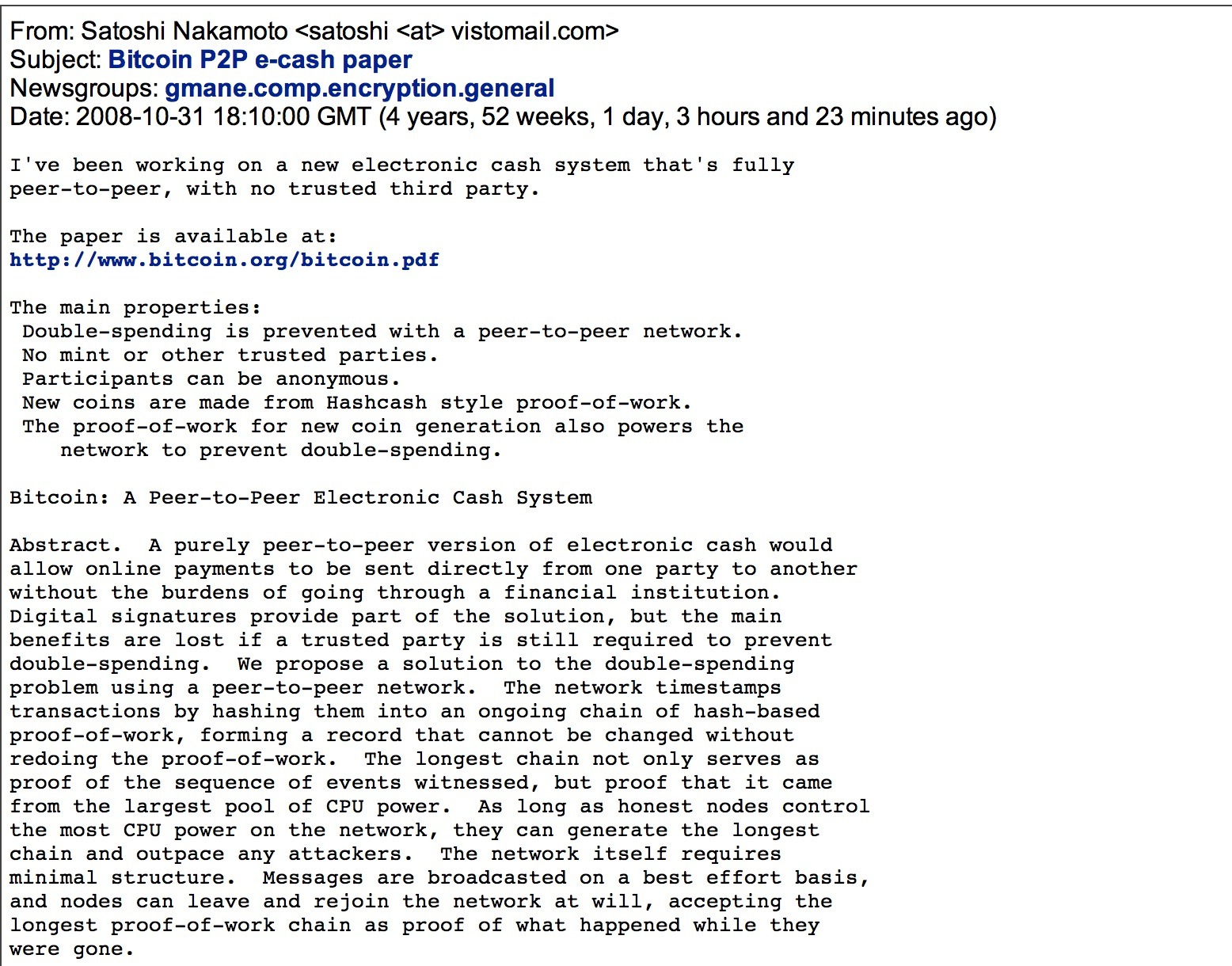I have very mixed feelings about the accuracy of today’s article from Newsweek regarding its claim to have discovered the identity of Bitcoin creator Satoshi Nakamoto. On the one hand, you’d think a major magazine would not make such a bold claim without extensive research and a high degree of certainty. Then again, this is Newsweek.
At the end of the day, since no one can really prove the story right or wrong, it’s certainly possible the magazine merely agreed that it sounded plausible enough and decided it was worth the risk given the page views it would generate.
I tend to have decent intuition on these things, and as I was reading it, something appeared to be off. Perhaps it was the writer’s style, or perhaps just the strangeness of this guy’s personality, but it read a bizarrely to me. The way the guy calls the cops when she shows up to his door. Why would the person who created Bitcoin respond in that way? Also, while on the surface it might seem clever to use your real name in an attempt to remain anonymous, it isn’t really. Everyone trying to figure out who you are will start with searches of Satoshi Nakamoto no matter how stupid it seems.
The one thing that is causing many to speculate that this story is accurate, is the following tweet from Bitcoin core developer Gavin Andresen:
I’m disappointed Newsweek decided to dox the Nakamoto family, and regret talking to Leah.
— Gavin Andresen (@gavinandresen) March 6, 2014
This definitely reads as if Gavin is confirming the article, but it is still unclear to me whether Gavin himself knew Satoshi’s identity, or if he was just communicating with a digital person while working on Bitcoin.
*Update: It seems Gavin has posted a letter to Leah (the Newsweek journalist) on Reddit. He writes:
Hey Leah:
I meant exactly what I tweeted: I am disappointed you (or your publishers) chose to publish enough personal information that people can easily find Dorian and his family.
The pieces might all be public information, but you worked really hard to piece them all together, and the crazy people who might decide it is a good idea to go visit “Satoshi” are likely not as smart or hard-working as you.
And all of your evidence is circumstantial, EXCEPT for the “I’m not involved in that any more” quote, which might simply be an old man saying ANYTHING to get you to go away and leave him alone.
Anyway, I hope some good comes of all this; I hope it stimulates more debate on personal privacy and the role of journalists in our “pan-opticon” world.
So he is clearly not confirming that this man is the creator of Bitcoin. Now back to the original post…
From my perspective, something seems off in this article.
Nevertheless, here are some excerpts, come to your own conclusion:
Two police officers from the Temple City, Calif., sheriff’s department flank him, looking puzzled. “So, what is it you want to ask this man about?” one of them asks me. “He thinks if he talks to you he’s going to get into trouble.”
“I don’t think he’s in any trouble,” I say. “I would like to ask him about Bitcoin. This man is Satoshi Nakamoto.”
“What?” The police officer balks. “This is the guy who created Bitcoin? It looks like he’s living a pretty humble life.”
Tacitly acknowledging his role in the Bitcoin project, he looks down, staring at the pavement and categorically refuses to answer questions.
I’d come here to try to find out more about Nakamoto and his humble life. It seemed ludicrous that the man credited with inventing Bitcoin – the world’s most wildly successful digital currency, with transactions of nearly $500 million a day at its peak – would retreat to Los Angeles’s San Bernardino foothills, hole up in the family home and leave his estimated $400 million of Bitcoin riches untouched. It seemed similarly implausible that Nakamoto’s first response to my knocking at his door would be to call the cops. Now face to face, with two police officers as witnesses, Nakamoto’s responses to my questions about Bitcoin were careful but revealing.
Not only does it seem implausible, it seems absurd to me. You are just asking for attention and to be outed by doing that.
Far from leading to a Tokyo-based whiz kid using the name “Satoshi Nakamoto” as a cipher or pseudonym (a story repeated by everyone from Bitcoin’s rabid fans to The New Yorker), the trail followed by Newsweek led to a 64-year-old Japanese-American man whose name really is Satoshi Nakamoto. He is someone with a penchant for collecting model trains and a career shrouded in secrecy, having done classified work for major corporations and the U.S. military.
Donate bitcoins: 35DBUbbAQHTqbDaAc5mAaN6BqwA2AxuE7G
Follow me on Twitter.



